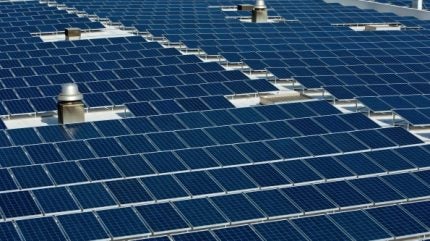
Volkswagen Group owned SEAT S.A. says it has achieved the best sustainability results in its history in 2023, thanks to the effectiveness of its strategic projects in the environmental, social and governance (ESG) areas.

Discover B2B Marketing That Performs
Combine business intelligence and editorial excellence to reach engaged professionals across 36 leading media platforms.
The company has reduced the environmental impact of its facilities in Martorell, Barcelona and El Prat by 53% since 2010, by improving its production processes.
“Sustainability is a key pillar of SEAT S.A.’s corporate strategy and is at the heart of the transformation process we are undergoing towards electrification,” said Markus Haupt, Executive Vice-President for Production and Logistics at SEAT S.A. “We aimed to reduce the environmental impact in the specific area of production by 50% by 2025, something we have already achieved. We are now moving forward to achieve carbon neutrality at our facilities by 2040, in line with the Volkswagen Group’s strategy.”
Reducing the environmental impact of manufacturing
SEAT S.A. maintains it has worked hard to minimise the environmental impact of its facilities. In 2010, the company began to measure key factors that allowed it to understand the real footprint of its processes and implement efficient improvement programmes. SEAT S.A.’s results in five key indicators in the production process, established by the Volkswagen Group, are the best recorded by the company in its history, and the environmental impact of its centres in Martorell, Barcelona and El Prat has been reduced to less than half in this period.
Firstly, energy consumption has been reduced by 33% since 2010 through efficiency measures and organisational improvements, which the company continues to focus on. Regarding electricity, all consumption has come from 100% renewable sources since 2012.
Secondly, the 69% reduction in carbon emissions achieved since 2010 sets the way forward over the coming years. In line with the Volkswagen Group’s decarbonisation targets, SEAT S.A. will achieve carbon neutrality in all its facilities by 2040 and for the entire company by 2050.
Reducing water consumption has also been a priority in recent years. Especially in recent months, given the severe drought in Catalonia. SEAT S.A. has reduced the water consumption needed to produce a car at its facilities by 45% since 2010. The company has adopted measures to optimise processes, as well as working on future actions focused on installing more efficient technologies and promoting water recirculation.
The latest indicators focus on waste generation, which is sent to treatment facilities for disposal, and solvent emissions. Both have been reduced, by 78% and 45%, respectively, since 2010.
New projects to further boost sustainability
SEAT S.A.’s journey towards sustainability seeks to ensure continuous improvement that has a short- and long-term impact. In line with this objective, in recent months the company has launched key projects such as SEAT al Sol 2. From 2025, the facilities will have 39,000 solar panels on a surface area of 233,000 square metres in Martorell, El Prat and Barcelona, and will generate 29 gigawatt per hour (GWh), tripling SEAT S.A.’s renewable energy self-generation capacity.
In 2023, SEAT S.A. started the installation of the Volkswagen Group’s first 100% electric paint drying oven in Martorell, which has recently come into operation. It is a highly efficient solution that minimises heat loss and reduces energy consumption by 25%, which means savings of 2,500 tonnes of CO2 per year, equivalent to more than 550 combustion cars running for a year. This project has been financed by the European Union with Next Generation EU funds through the Ministry of Industry, Trade and Tourism.






